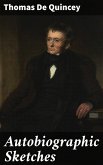In "Rochester," Charles Williams masterfully weaves a narrative that delves into the complexities of the human experience through the life of the 17th-century poet and playwright John Wilmot, the Earl of Rochester. Employing a rich, lyrical prose style, Williams juxtaposes the libertine ethos of Rochester's life with profound existential inquiries, crafting a text that resonates with the fervor of the metaphysical poets. The novel is steeped in the cultural context of Restoration England, illustrating the social tensions between licentiousness and the burgeoning notions of morality and individuality, ultimately revealing the moral dilemmas within the hedonistic pursuits of its protagonist. Charles Williams, a member of the Inklings alongside J.R.R. Tolkien and C.S. Lewis, was deeply influenced by his Christian faith and philosophical inquiries. His literary outputs often reflect his fascination with the mystical interplay between good and evil, as well as the nature of redemption. This background undoubtedly informs his portrayal of Rochester, whose life serves as a canvas for exploring divine grace amidst human folly, revealing the philosophical depth that characterizes Williams' writing. "Rochester" is a compelling read for anyone interested in the intricate relationship between literature, morality, and historical context. Williams' nuanced character study and philosophical introspection challenge readers to confront the darker facets of human desire while contemplating the possibilities of redemption. This novel is not just a biography but a meditation on the human condition, making it an essential addition to the canon of English literature.
Dieser Download kann aus rechtlichen Gründen nur mit Rechnungsadresse in A, B, BG, CY, CZ, D, DK, EW, FIN, F, GR, H, IRL, I, LT, L, LR, M, NL, PL, P, R, S, SLO, SK ausgeliefert werden.









